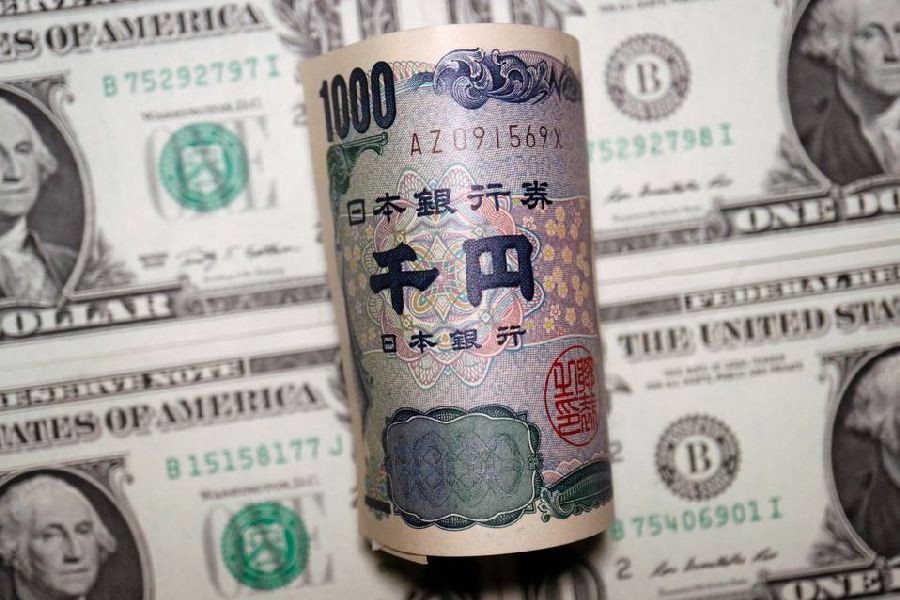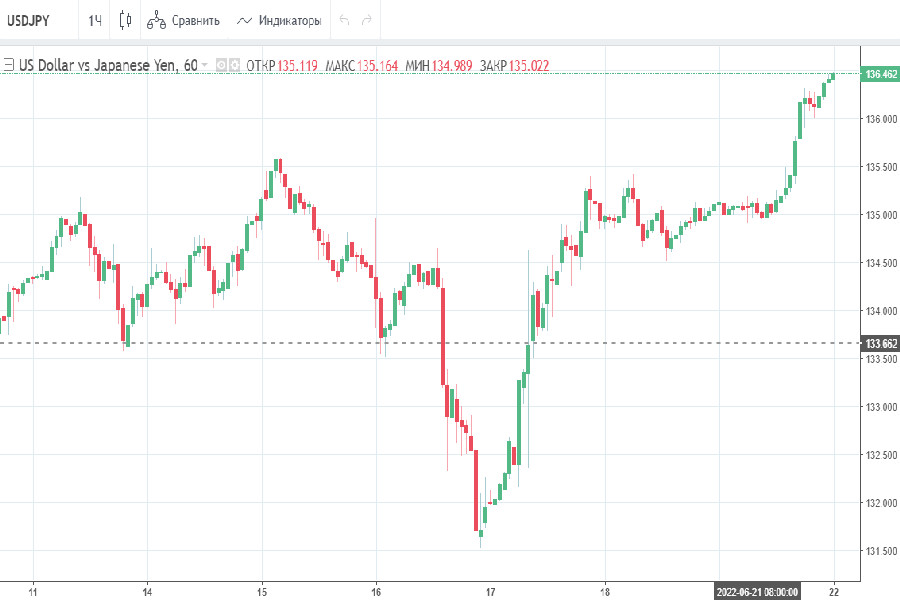
Tuesday in Asian markets was a day of respite and return to risky assets. The long weekend on the US stock exchanges is over, and currently the indices of American capital are also being explained. Don't be fooled by the optimistic green color on the charts! After all, by and large, everything remains unchanged on the macroeconomic front. And in tomorrow's speech of the head of the US Federal Reserve before Congress, in fact, there will be no surprises. Fed Chairman Jerome Powell will present the central bank's plans for the next two years, and the main hot topic, of course, is the fight against high inflation.
And Reserve Bank of Australia Governor Philip Lowe has already announced a further scenario today and warned: "As we return to a supply of 2-3%, Australians should be prepared for further increases in interest rates." The Australian central bank intends to further raise the level of interest rates, which "is still very low for an economy with a low valuation and high inflation." The Australian stock market traded with optimism today. The main drivers of growth were the energy and mining industries. The recovery of risk sentiment occurred on purchases of shares of Whitehaven Coal (+6.8%), Fortescue Metals (+2.7%), Woodside Energy (+2.3%), Rio Tinto (+2.2%), BHP Group (+1.7%), Santos Ltd. (+1.2%).
The Hong Kong Monetary Authority followed the Fed's example, which raised interest rates last week. Moreover, in order to prevent further weakening of the local currency, the central bank of Hong Kong bought it on the market in the amount of 664.9 million US dollars. Moreover, as local media reported with reference to the executive director of the Hong Kong Monetary Authority, the central bank may even accelerate the purchase of local currency and bring interest rates to the US level. By the way, reports from the United States about the possible cancellation of some tariffs for China in order to curb rising inflation also gave investors optimism. As a result, on Tuesday, the Hong Kong stock market approached a 2-week high. The largest growth was shown by shares of HSBC Holdings (+4%), Rival Standard Chartered (+3.8%), Tencent (+1.8%), Kuaishou (2.1%).
In order to avoid further divergence in monetary policy in relation to other countries, the People's Bank of China has also taken certain actions. On Monday, China's central bank suspended its policy easing and left its benchmark lending rates unchanged. Analysts also expect China to move to more stimulus in the rest of 2022. Among the companies, the largest growth occurred in the shares of ChongQing Changan (+5.5%), Shandong Xinhua (+4.9%) Goertek (+4.0%), Longi Green Energy (+3%), Everbright Securities (+1.3%).
Japanese stocks also showed a broad rally, and this happened in all sectors. Previously, prolonged sales on the dangers of recession made assets cheaper, and investors took advantage of this. The leaders were high technologies: Enechange (11.3%), SoftBank Group (+3.6%), Renesas Electronics (2.9%), Recruit Holdings (2.9%), Tokyo Electron (+1.8%), Lasertec (1.6%). Among other heavyweights, Sony Group (+3.4%), Mitsubishi Heavy Industries (+3.0%), Nippon Yusen (2.6%), Toyota Motor (1.7%), Fast Retailing (1.2%) are in high demand.
Reference indices of the Asia-Pacific region
MSCI (APR, except Japan) – 2.494 (daily range 2.485 – 2.494)
Nikkei 225 (Japan) – 26.246 (daily range 25.972 – 26.418)
Shanghai Composite (China) – 3.306 (daily range 3.279 – 3.329)
S&P/ASX 200 (Australia) – 6.523 (daily range 6.433 – 6.537)
NZX 50 (New Zealand) – 10,702 (closing price 10,701)
Hang Seng (Hong Kong) – 21.559 (daily range 21.175 – 21.564)
KOSPI (South Korea) – 2.408 (daily range 2.385 – 2.423)
The problem is that none of the financial officials (neither in the US nor anywhere else) has any practical experience in the current situation. At first, the world was faced with a pandemic, and monetary regulators began to support the economies of their countries by pursuing a very soft monetary policy. Now, gradually tightening rates, the Fed, ECB, RBA and other central banks are trying to stop the depreciation of money and the rise in price of labor and products of production. And they have to do this in conditions of negative geopolitics in Europe, disruption of supply chains and prohibitively high prices for raw materials.
Japanese yen hits anti-records

Meanwhile, the Japanese yen continues to depreciate and loses to the US dollar more than all its partners in the basket of currencies. And although its unique position allows one part of the Japanese business to grow, another part of it suffers losses and raises prices for its products. Movements on the USD/JPY pair are causing increasing concern among the country's top officials. Today, both the prime minister of Japan and the head of the Ministry of Finance spoke on this topic. Japanese Prime Minister Fumio Kishida noted that the country's monetary policy is not limited only to the exchange rate. According to him, monetary policy should be considered holistically, as it "not only affects the exchange rate, but also the cost of borrowing for small businesses." Finance Minister Shun'ichi Suzuki again spoke about the undesirability of rapid currency movements and that they could damage economic stability. However, neither the timing nor the sources of financing "for rapid comprehensive measures to combat price increases have yet been determined." As we can see, the verbal interventions of officials did not help the strengthening of the Japanese currency. The yen continues to lose points against the US dollar and sets another anti-record.
 English
English 
 Русский
Русский Bahasa Indonesia
Bahasa Indonesia Bahasa Malay
Bahasa Malay ไทย
ไทย Español
Español Deutsch
Deutsch Български
Български Français
Français Tiếng Việt
Tiếng Việt 中文
中文 বাংলা
বাংলা हिन्दी
हिन्दी Čeština
Čeština Українська
Українська Română
Română

